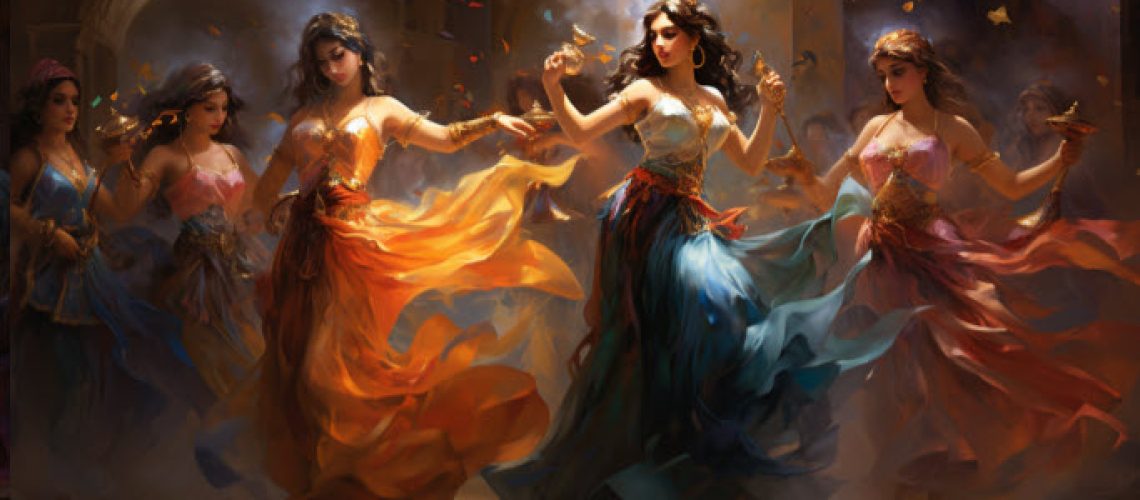Are you ready to unlock the mesmerizing power of your hips through belly dance?
Imagine yourself swaying gracefully, like a shimmering goddess, as the music fills the air. Welcome to the captivating world of belly dancing classes! In these enchanting sessions, you will embark on a journey that celebrates femininity, self-expression, and body confidence. The rhythmic movements of belly dance not only tone your core muscles but also unleash your inner sensuality.
During belly dance lessons, you will learn an array of techniques including shimmies, undulations, and isolations that will enhance your coordination and flexibility. Expert instructors will guide you through each step with patience and precision. As you delve deeper into this ancient art form, you’ll discover various styles of belly dance such as Egyptian, Turkish, and Tribal Fusion. Whether you’re drawn to traditional elegance or modern fusion moves, there’s a style that perfectly suits your unique personality.
So put on something comfortable yet alluring – perhaps a flowy skirt or hip scarf – and get ready to immerse yourself in the magic of belly dancing classes. Let loose, embrace your femininity, and ignite a fire within that will keep burning long after the music stops. Join us for an unforgettable experience!
About Bolton
| Bolton | |
|---|---|
| Town | |
      
|
|

Bolton
Location within Greater Manchester
|
|
| Population | 194,189 (2011 Census) |
| OS grid reference | SD715095 |
| Metropolitan borough |
|
| Metropolitan county |
|
| Region |
|
| Country | England |
| Sovereign state | United Kingdom |
| Post town | BOLTON |
| Postcode district | BL1-BL7 |
| Dialling code | 01204 |
| Police | Greater Manchester |
| Fire | Greater Manchester |
| Ambulance | North West |
| UK Parliament |
|
53°34′41″N 2°25′44″W / 53.578°N 2.429°W / 53.578; -2.429 |
|
Bolton ( BOHL-tən, locally BOH-tən) is a town in Greater Manchester in England. In the foothills of the West Pennine Moors, Bolton is surrounded by Manchester (10 miles (16 km) south-east), Blackburn, Wigan, Bury and Salford. It is amongst several towns and villages that form the wider borough, of which Bolton is the administrative centre. The town is plus within the historic county boundaries of Lancashire.
A former mill town, Bolton has been a middle for textile production back the 14th century subsequently Flemish weavers fixed in the area, introducing a wool and cotton-weaving tradition. It was a 19th-century boomtown, development largely coincided bearing in mind the initiation of textile build during the Industrial Revolution. At its top in 1929, its 216 cotton mills and 26 bleaching and dyeing works made it one of the largest and most productive centres of cotton spinning in the world. The British cotton industry declined rapidly after the First World War and, by the 1980s, cotton develop had roughly ceased in the town.
The town has a population of 139,403, whilst the wider metropolitan borough has a population of 262,400. Bolton originated as a little settlement in the moorland known as Bolton le Moors. In the English Civil War, the town was a Parliamentarian outpost in a staunchly Royalist region and, as a result, was stormed by 3,000 Royalist troops led by Prince Rupert of the Rhine in 1644. In what became known as the Bolton Massacre, 1,600 residents were killed and 700 were taken prisoner.
Bolton Wanderers football club now play home games at the University of Bolton Stadium in Horwich and the WBA World light-welterweight champion Amir Khan was born in the town. Cultural interests count the Octagon Theatre and the Bolton Museum and Art Gallery, as skillfully as one of the dated public libraries established after the Public Libraries Act 1850.

